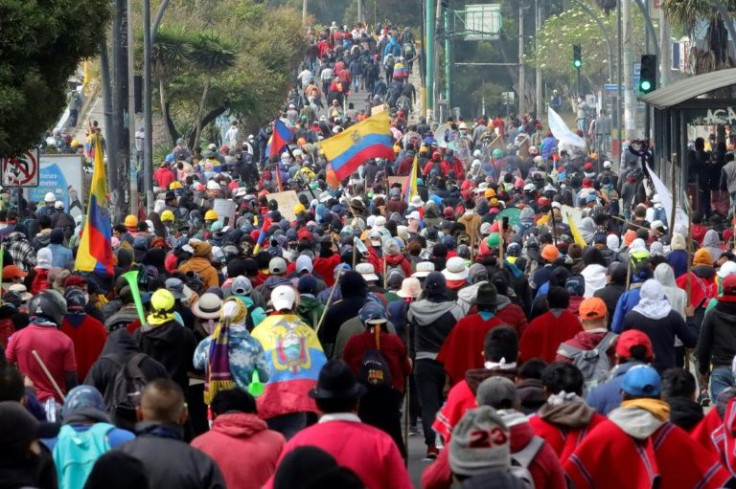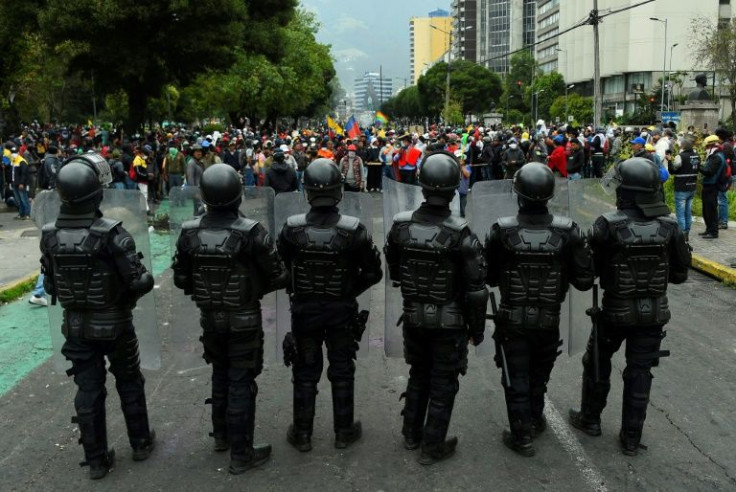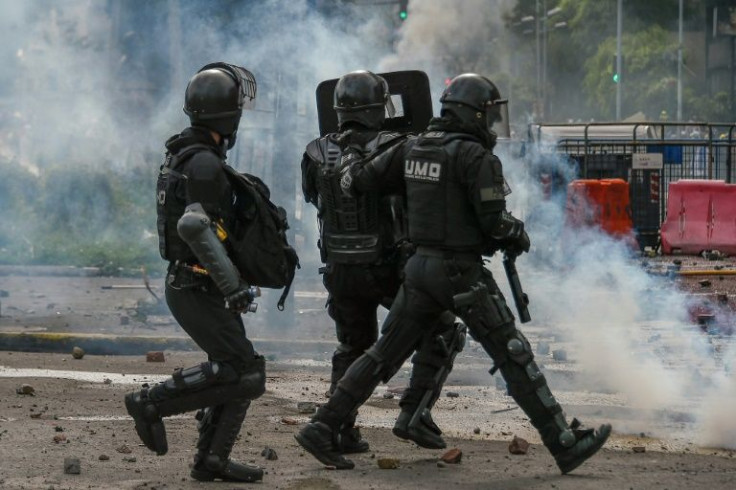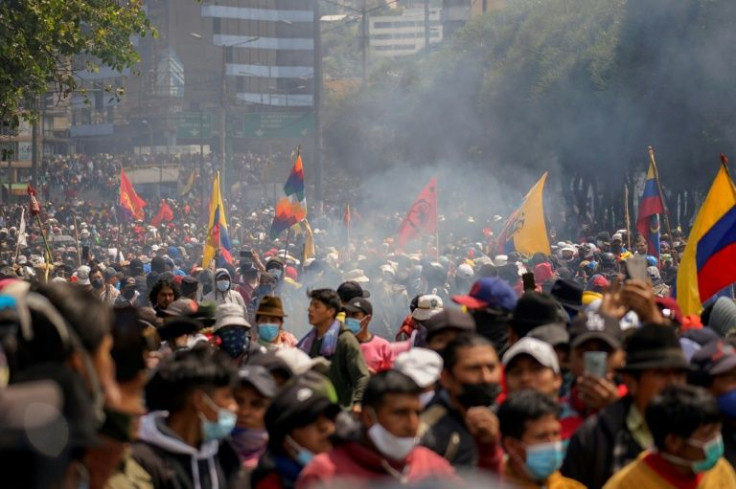Government, Indigenous Ecuadorans Dig In Heels On Day 10 Of Protests
Thousands flooded the Ecuadoran capital Quito Wednesday for a tenth day of demonstrations over living costs, in an ever-tenser standoff between the government and Indigenous protesters that has left two dead.
The government rejected protesters' demands to lift a state of emergency in six of the country's 24 provinces and said 18 officers were missing following an attack by protesters on a police station in the Amazonian city of Puyo.
The capital has been semi-paralyzed since Monday, with the arrival of some 10,000 protesters from around the country who have been taking to the streets daily with demands for fuel price cuts and other social aid amid growing economic hardship.

Protesters burned tires and tree branches, while barbed wire and military guards protected the presidential headquarters.
Some 90 civilians and 100 security personnel have been injured, according to rights groups and the government, and about 87 civilians arrested since the countrywide protests started on June 13.
President Guillermo Lasso has proposed dialogue with the powerful Confederation of Indigenous Nationalities of Ecuador (Conaie), which called the protests, in a bid to end the escalating violence.
But Conaie leader Leonidas Iza has said talks were conditional on the state of emergency being repealed and the "demilitarization" of a park in Quito that has been a rallying point for Indigenous people but was taken over by the security forces.

"We cannot lift the state of exception because that would leave the capital defenseless, and we already know what happened in October 2019 and we will not allow that," Minister of Government Francisco Jimenez told the Teleamazonas channel.
Conaie led two weeks of protests in 2019 in which 11 people died and more than 1,000 were injured.

Iza said on Wednesday the government has "blood on its hands" for its response to the latest protests.
Interior Minister Patricio Carrillo, for his part, said 18 officers were missing after an attack that injured six others, as well as a protester.
"The mob began setting fires with police still inside patrol cars, began looting, burning... until they ended up torching the police facilities in the center of the city," said Carrillo.

Ecuador, a small South American country riddled by drug trafficking, has been hit by rising inflation, unemployment and poverty -- all exacerbated by the pandemic.
Olmedo Ayala, 42, said Indigenous people were "very annoyed with the government.
"We live in economic crisis in the countryside, there is no development there, we have no sources of work, we're just farmers and our women (live off) milking" livestock.
A key demand of the protesters is a lowering of fuel prices, which have risen sharply in recent months.
Ecuador exports crude oil but imports much of the fuel it consumes.
An Indigenous protester died after he was "hit in the face, apparently with a tear gas bomb" on Tuesday following a confrontation with security forces in Puyo, a lawyer for the Alliance of Human Rights Organizations told AFP.
The police said "it was presumed that the person died as a result of handling an explosive device."
Another protester died on Monday after falling into a ravine outside Quito, with police claiming that too was an accident.
However, the public prosecutor's office has opened a murder investigation.
Brian Nichols, the top US diplomat for Latin America, called in a Tweet Wednesday for "a peaceful and negotiated resolution to the protests in Ecuador" and urged all parties to refrain from violence.
The Organization of American States urged dialogue to "address the claims of the community."
In a statement it said "it is necessary that the political system gives immediate response on improvement of subsidies, cancellation of overdue loans, as well as resolving the state of emergency in the health sector and improvements in the budget for intercultural education, among others."
© Copyright AFP 2024. All rights reserved.







